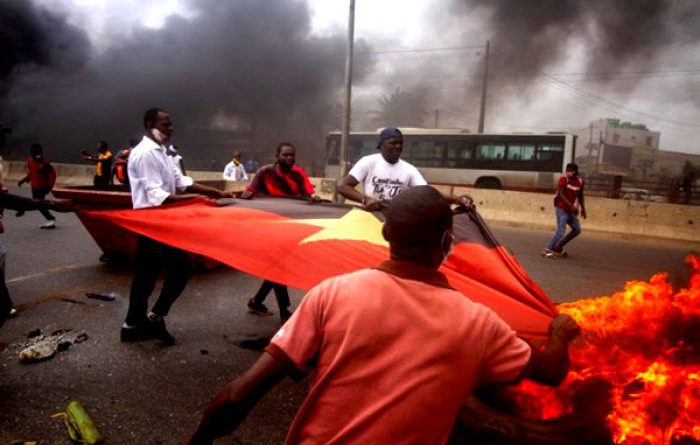By Florindo Chivucute
Luanda, June 2, 2025
Less than two years ahead of Angola’s 2027 general elections, the country is already witnessing a troubling escalation in political intolerance and violence against opposition figures and activists. Recent events suggest a deteriorating political climate that threatens the fragile democratic coexistence established after decades of conflict.
On April 28, 2025, a tragic act of violence shook the national political community: the UNITA secretary in Sequele was executed at point-blank range inside his own home during the night. According to the portal Angola24Horas, witnesses reported that the attackers broke down the door and shot the victim without warning, in what has widely been interpreted as a politically motivated crime.
Just weeks later, on May 29, 2025, another violent attack was carried out in the municipality of Ngalanga, in Huambo Province, targeting a UNITA delegation led by prominent figures, including General Apollo Felino Pedro Yakuvela. The group was brutally assaulted by more than 150 individuals identified as MPLA supporters, armed with sticks, stones, and machetes. The attack, which occurred just meters from the National Police Municipal Command, left at least seven people injured and resulted in the disappearance of a delegation member. The visit had been previously communicated to provincial and municipal authorities.
These acts of violence are neither isolated incidents nor unique to the current electoral cycle. Angola has a long history of political repression that dates back to the 1992 elections, when thousands of UNITA supporters were persecuted and killed in Luanda and other provinces following the collapse of the electoral process. In 2017, violent clashes between MPLA and UNITA supporters were reported in Benguela, Huambo, and Cuanza Sul. After the 2022 elections, observers from the European Union and Angolan civil society denounced the repression of peaceful protests, arbitrary arrests of activists, and intimidation of election monitors, particularly in opposition strongholds such as Cacuaco, Viana, and Bié.
The pattern is recurrent: a state that fails to act as an impartial referee, security forces used to protect partisan interests, and a political culture still rooted in one-party dominance. The Ngalanga incident reveals not only the brutality of the attackers but also the complicity — or negligence — of authorities who failed to prevent the assault, despite being stationed just steps away.
This escalation of violence underscores the weakness of Angola’s democratic institutions and the lack of genuine political will to ensure free, fair, and safe elections. When opposition members cannot move freely, visit communities, or engage in public activities without fear of attack, democracy ceases to function and becomes mere political theater governed by repression.
With two years to go before the next elections, Angola stands at a crossroads. It can continue down the path of intimidation, impunity, and political exclusion — or it can, with courage and responsibility, fully embrace the principles of pluralism, mutual respect, and equal participation.
Democracy cannot be built with stones and machetes. It cannot be sustained by fear and persecution. Where political violence exists, there is no freedom — and where there is no freedom, there can be no democracy.
About the Author
Florindo Chivucute is the founder and executive director of Friends of Angola (FoA), an organization dedicated to promoting democracy, human rights, and good governance in Angola and the Central African region. He is a consultant, researcher, and expert in international sanctions regimes, holding a degree in Government and International Politics and a master’s in Conflict Analysis and Resolution from George Mason University in the United States. His work stands out for his direct engagement in anti-corruption efforts, advocacy for institutional transparency, and strengthening of citizen participation in political transitions.

